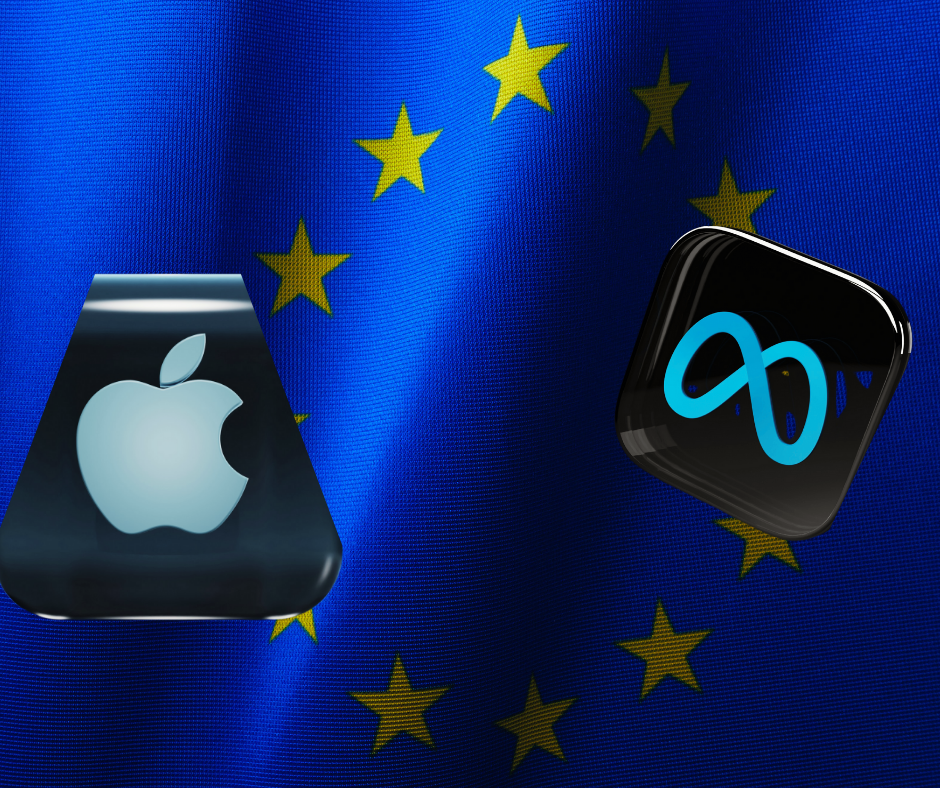The European Commission has imposed fines on Apple and Meta for failing to comply with the obligations set out in the Digital Markets Act (DMA), marking the first enforcement actions taken under the new regulatory framework for digital gatekeepers.
Apple Fined €500 Million for Breach of Anti-Steering Obligations
Apple has been fined €500 million for breaching Article 5(4) of the DMA, which requires gatekeepers to allow app developers to inform users about alternative purchasing options outside of a gatekeeper’s app store. The Commission found that Apple’s steering rules imposed unjustified commercial and technical restrictions that prevented developers from communicating alternative offers to users—thereby limiting consumer choice and competition.
The decision concludes a formal investigation opened in March 2024. Despite multiple opportunities for Apple to demonstrate the necessity of its practices, the Commission determined that the restrictions were neither proportionate nor justified. In addition to the financial penalty, Apple has been ordered to remove these restrictions and ensure future compliance with the DMA.
While the Commission closed a separate investigation concerning Apple’s compliance with user choice obligations—acknowledging constructive engagement and positive changes—preliminary concerns remain over Apple’s practices related to alternative app distribution. Specifically, the Commission has expressed that Apple’s Core Technology Fee and other contractual conditions continue to disincentivize developers from distributing apps outside the App Store. These issues remain under scrutiny.
Meta Fined €200 Million Over Non-Compliant Advertising Model
Meta has been fined €200 million for failing to provide users with a valid alternative to consenting to the combination of their personal data across services—another core requirement of the DMA. Under the company’s “Consent or Pay” model, EU users of Facebook and Instagram were forced to either accept personalized advertising based on extensive data tracking or pay for an ad-free version of the platforms.
The Commission found that Meta’s model did not offer an equivalent service that used less personal data, nor did it allow users to freely exercise their right to opt out. While Meta introduced a revised advertising model in November 2024, the fine relates to the period between March and November 2024, during which the original model was deemed non-compliant.
The Commission continues to evaluate the updated model and has called on Meta to provide evidence of its practical impact. Separately, the Commission also determined that Meta’s Facebook Marketplace no longer qualifies as a core platform service under the DMA, following an assessment of the platform’s declining business user base.
Setting a Precedent for Enforcement under the DMA
These decisions represent the first non-compliance rulings under the DMA, which came into full effect in March 2024. Under the Act, the Commission can impose fines of up to 10% of a company’s global annual turnover for non-compliance. The penalties issued to Apple and Meta reflect the seriousness and duration of their respective breaches.
Reactions
Executive Vice-President Teresa Ribera stated, “Today’s decisions send a strong and clear message. The DMA is a crucial tool to ensure fair and contestable digital markets. Apple and Meta have failed to comply with rules designed to empower users and level the playing field for businesses.”
Henna Virkkunen, Executive Vice-President for Tech Sovereignty, emphasized, “Free choice for businesses and consumers is fundamental. These companies must respect users’ rights and European values, especially when it comes to how personal data is handled.”
“Today’s announcements are yet another example of the European Commission unfairly targeting Apple in a series of decisions that are bad for the privacy and security of our users, bad for products, and force us to give away our technology for free,” Apple said in an emailed statement reported by Reuters.
“The European Commission is attempting to handicap successful American businesses while allowing Chinese and European companies to operate under different standards,” Meta said in an emailed statement reported by Reuters.
Next Steps
Both Apple and Meta have 60 days to comply with the Commission’s decisions or risk additional periodic penalty payments. The Commission will continue monitoring both companies to ensure full and lasting compliance with the DMA’s provisions.
